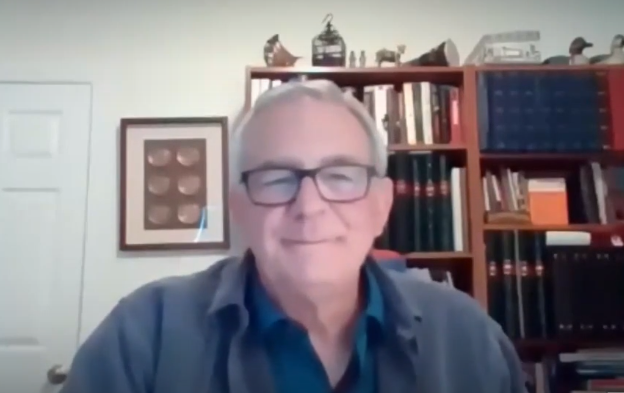Dr. Hal Cunningham, the vice president of the Southern Baptist International Mission Board, shared five components of missionary assessments that help agencies, churches, and missionaries themselves evaluate and equip the necessary characters for Middle Eastern missionaries.
On July 13th, the fourth day of the Chinese Destiny Middle East Revival Global Missionary Mobilization Conference hosted by the Chinese Servant Leadership Center, the experienced mission trainer gave a thematic speech on how to determine the right missionary for the Middle East, beginning with demonstrating the specific evangelism environment rooted in that area.
Opening a website named People Groups, Dr. Cunningham showed the audience an overview of the Arab world, pointing out that there are 428 unreached people groups among the total of 444 people groups in North Africa and the Middle East, which means less than 2% are Christians. What's more, within these 428 unreached people groups, there are more than 90 million people who have never engaged with Christianity or the gospel.
Along with the great evangelism possibilities in the Arab world, there are specific barriers that missionaries need to overcome. Except for the political, economic, and social turmoil caused by different forces scrambling oil and natural gas resources, Dr. Cunningham said that the Arabic language and Muslim culture would be other big issues. The English, Spanish, and Chinese languages that most of us use are not useful in the Arab world, and most missionaries are not familiar with Arabic culture.
Facing these difficulties, Dr. Cunningham moved to teach the basic model of a missionary task abstracting from SBC International Mission work, including five parts: gain access to the mission field, evangelism, discipleship, church formation, leadership development, and exit to the partnership, which in other words means reproducing churches.
To finish these tasks, he emphasized three factors. First, rather than short-term mission projects, we need long-term missionaries who can really stay there to understand the language and culture, discipline believers, train leaders, and plant churches, which also raises the question, "Who can recruit and support these long-term missionaries?"
Second, we need both men and women missionaries since cross-gender evangelism is uncommon and even dangerous in the Arab world.
The third and core factor of the task model is the concept of "Abide", which means missionaries need to live a life as followers of Jesus with the testimony of life in addition to verbal testimony.
After traveling to six countries and meeting different church leaders in recent months, Dr. Cunningham pointed out that to successfully realize the mission task, we have to "send the right people to the right place at the right time." And he summarized five components of missionary assessment.
First, the right people should have a clear understanding of Christian and church identity. They should have at least basic knowledge about the Bible and biblical narrative, have Christian inner character, and practice Christian disciplines like prayer, devotion, and scripture memory.
Second, the missionary call should be confirmed.
Third, they must have missionary competencies and qualifications, with pastoral, disciple training or leadership planting skills, etc in accordance with specific needs and necessary seminary degree, certification or experience, etc.
Fourth, health and wellness need to be evaluated and ensured, which includes physical, emotional, and spiritual health. Clear and important problems need to be healed before they go to the mission world.
Fifth, practical preparations like the age of missionaries, financial or pastoral support for them, etc. should be carefully considered.
Dr. Cunningham ended the speech with a passionate prayer in Chinese, showing gratitude for God's preparation and expecting more Chinese people to get inspired to participate in the work for the revival of the Middle East and together fulfill the calling of God's great commission.













